Types of Pressure Cookers: Which is Right for You?
What’s one appliance that has been a mainstay in kitchens worldwide for centuries? The answer is a pressure cooker. That's because they can speed up cooking times and tenderise tough ingredients. More flexible designs and materials are found in new styles of pressure cookers. So it can be difficult to find the right one for you as there are so many options present. This blog will explore the different types of pressure cookers and list down what you need to consider when buying one.
Understanding Types of Pressure Cookers
These cookers are of different kinds. These appliances can be classified according to the material that is used to make them. Their material also influences how they work. Let us now glance at how different types of pressure cookers function.
-
Aluminium Pressure Cookers
These light, inexpensive pressure cookers are some of the most common on the market. Due to their heat retention characteristics, they can also offer a shorter cooking time, making them a great choice for a busy kitchen. These cookers perform excellently and are great for cooking every day. They're energy-efficient and have a low heat-up time, making meal prep a breeze. Aluminium cookers are easier to handle due to their lightweight design, which is an added advantage for everyday cooking. They also require less maintenance, making them ideal for beginners or those who prefer simple, hassle-free cooking experiences.
-
Tri-ply Pressure Cookers
These are made of composite material with aluminium between two layers of stainless steel. Tri-ply pressure cookers are more expensive but are built for high-performance standards for serious, long-term use. They might as well be perfect for you if you’re in the market for a pressure cooker that will last you many years.
The key benefit of a tri-ply cooker is its ability to distribute heat more evenly across the cooking surface. This ensures that the cooker maintains consistent pressure, which is essential for cooking delicate dishes that require precision.
-
Stainless Steel Pressure Cookers
This particular variety provides durability to those who intend to spend a little extra. Acidic ingredients will not react with a pan-type pressure cooker made of stainless steel. As these cookers come with a non-reactive surface, they are a good option for curries and soups with tangy flavours.
Stainless steel cookers take more time to heat up than aluminium ones, but they beat the rest for slow-cooking dishes and maintaining constant pressure. They are rust—and corrosion-resistant, so they are aesthetically pleasing years down the road. These cookers make great investments for anybody who cooks often and is looking for a cooker that is built to last.
Moreover, stainless steel cookers are more versatile. They work well with a wide variety of cooking methods and ingredients, ensuring that you can cook everything from soups to steamed vegetables, making them a reliable choice for seasoned cooks and food enthusiasts alike.
Things to Consider When Buying a Pressure Cooker
There are numerous factors to consider when purchasing this appliance to make sure that you’re picking the best one. Here are the most important factors to think about:
-
Capacity
They come in several sizes, and the right one for you will depend on what you want to cook. A compact one is usually advised for small families or bachelors. If you frequently entertain guests or cook in bulk quantities, then you need to consider a large cooker. Selecting the correct size allows you to avoid overfilling the cooker, which can impact cooking and safety.
-
Material
How your pressure cooker is built will influence not only its longevity but also its cooking efficiency. Aluminium is lightweight and economical. Tri-ply and stainless steel retain heat better and are less reactive with food, making them a better option for complicated cooking tasks.
Consider the material that best suits your cooking needs and lifestyle. For instance, if you often cook for a large family, a tri-ply or stainless steel cooker may provide the durability and efficiency required for bigger meals.
-
Cooktop Compatibility
Your stovetop is a major factor in pressure cooker selection. If you have an induction stove, you’ll need a compatible model, which can be stainless steel or tri-ply. All types of pressure cookers are compatible with traditional gas stoves. Still, tri-ply and stainless steel cookers do a better job through heat retention on such stove types.
-
Safety Features
The new types of pressure cookers have a lot of advanced safety features to avoid accidents. Models with secure locks and safety valves are preferable. All of these features help to make operations safe in the kitchen.
Additionally, some modern pressure cookers are equipped with pressure indicators and automatic locking mechanisms that prevent accidental opening while under pressure. These safety features add an extra layer of security, especially for inexperienced users.
-
Ease of Cleaning and Maintenance
You want your pressure cooker clean-up process to be as easy as it can be. Stainless steel and tri-ply models are easier to clean and maintain than aluminium cookers.
-
Budget
Pressure cookers vary widely in price. Aluminium options are generally less expensive, while stainless steel and tri-ply cookers are often more expensive. The pressure cooker models with functions like pre-programmable settings and digital displays often tend to be pricier.
If you’re on a tight budget, aluminium pressure cookers provide excellent value for money. However, if you’re willing to invest more upfront, tri-ply or stainless steel options may prove to be more cost-effective in the long run due to their durability and improved cooking performance.
-
Cooking Needs
Consider what kinds of foods you’ll prepare to get an idea of what kinds of pressure cookers will be good for you. Use a steel or tri-ply pressure cooker to make slow-cooking stews, soups, and braised meats. If you want something for faster meals, aluminium cookers are the better bets.
Conclusion
Choosing the best pressure cooker is a balancing act of your cooking habits, budget, and kitchen needs. Make the right choice, and you'll save time and energy while elevating your cooking performance to serve better meals.






























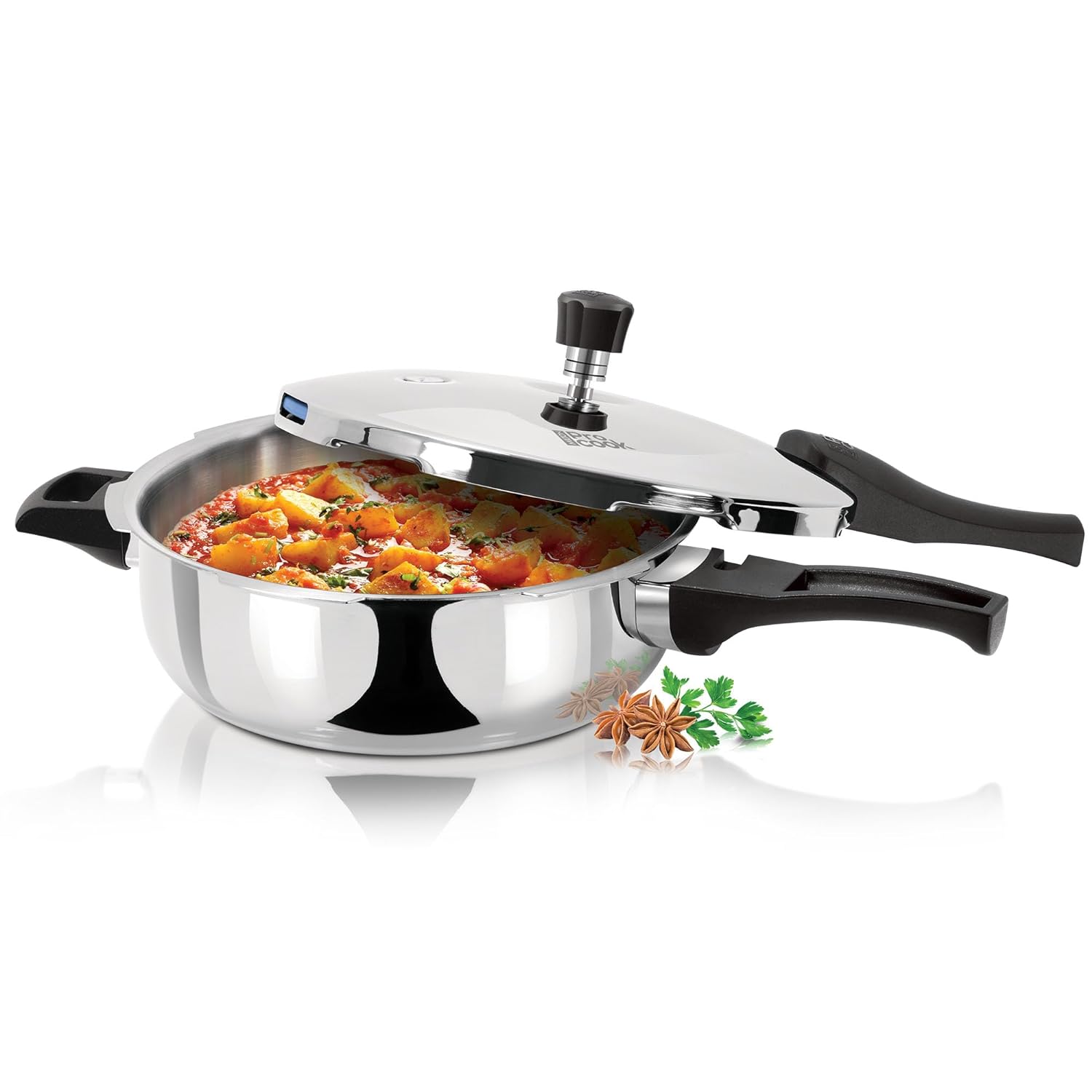
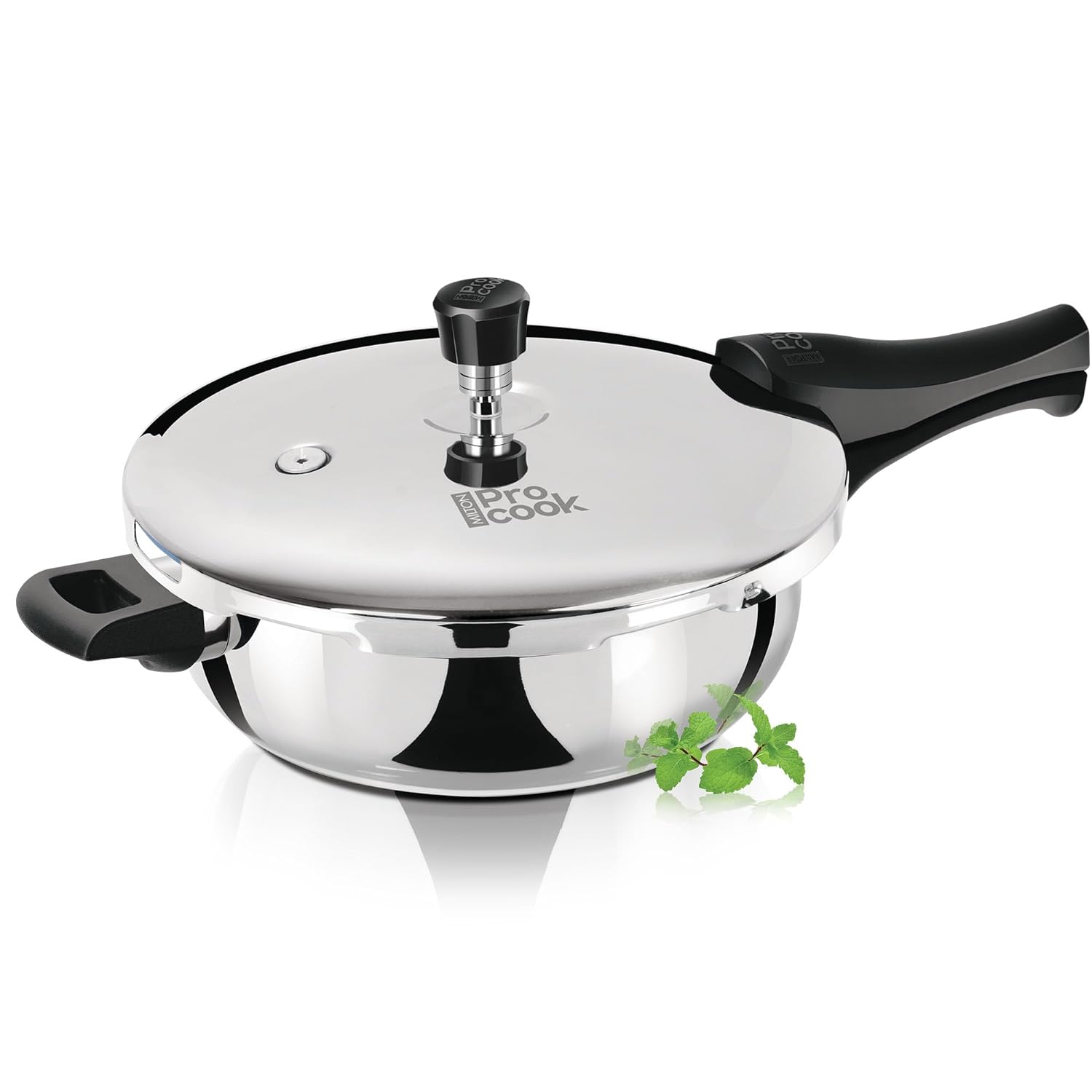
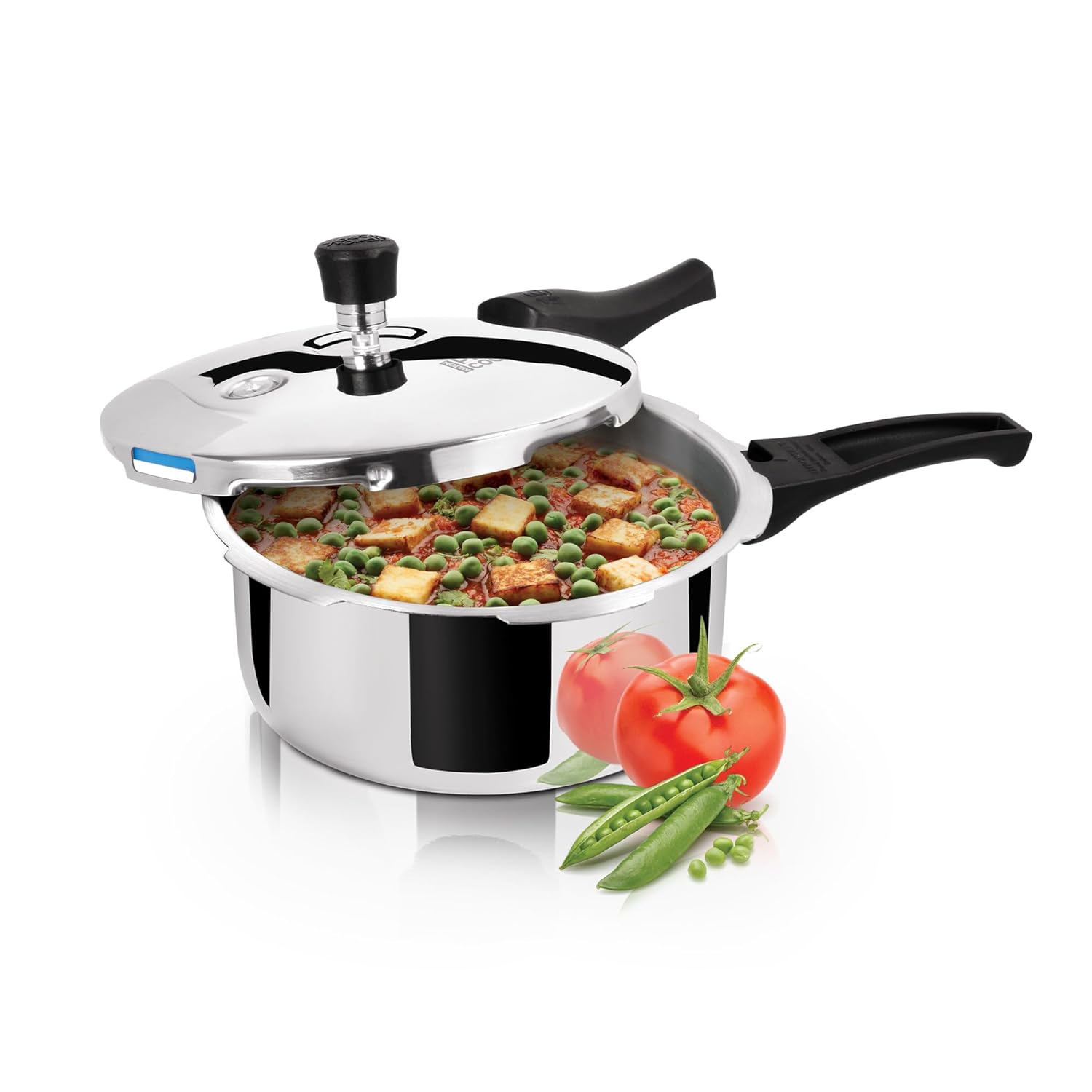
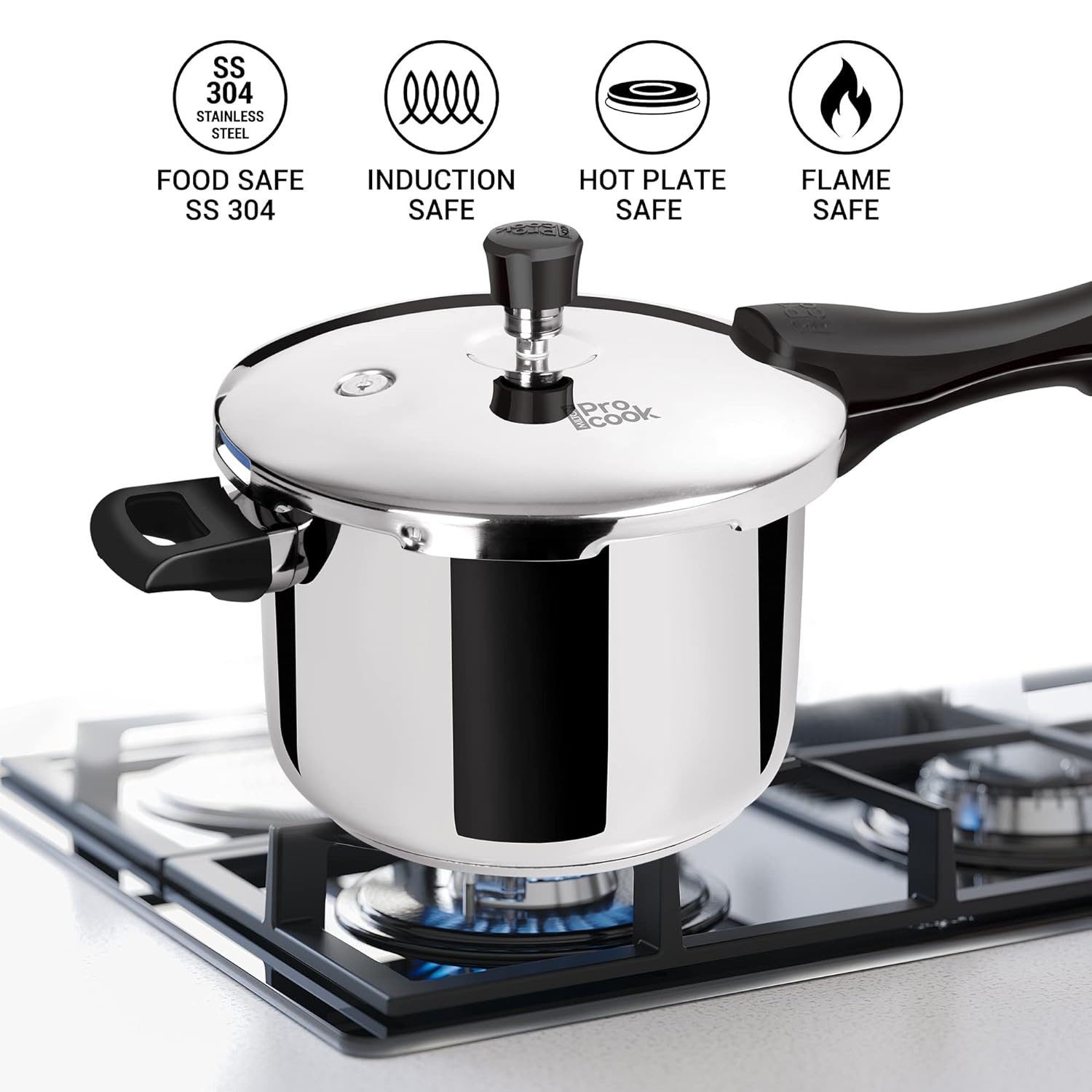
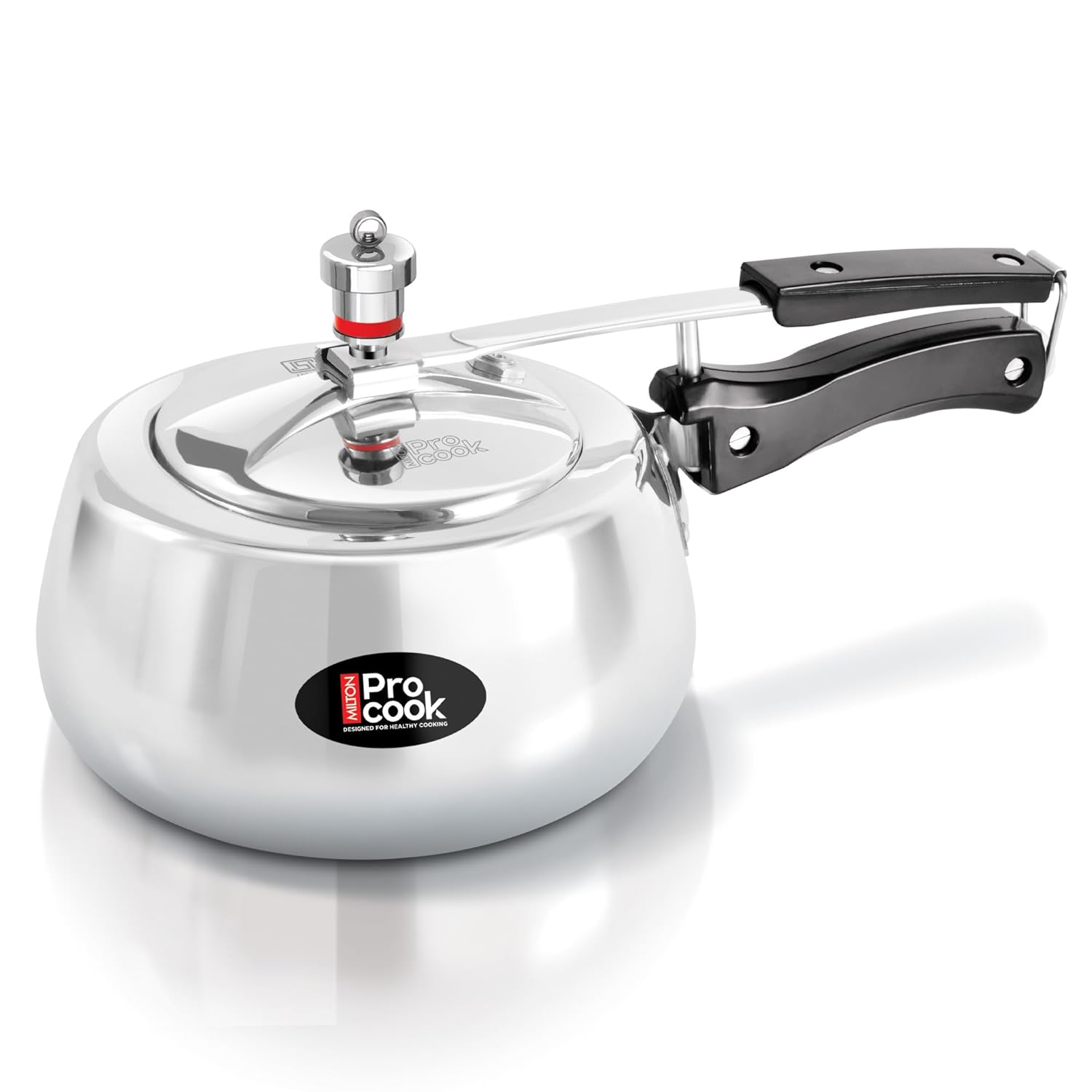
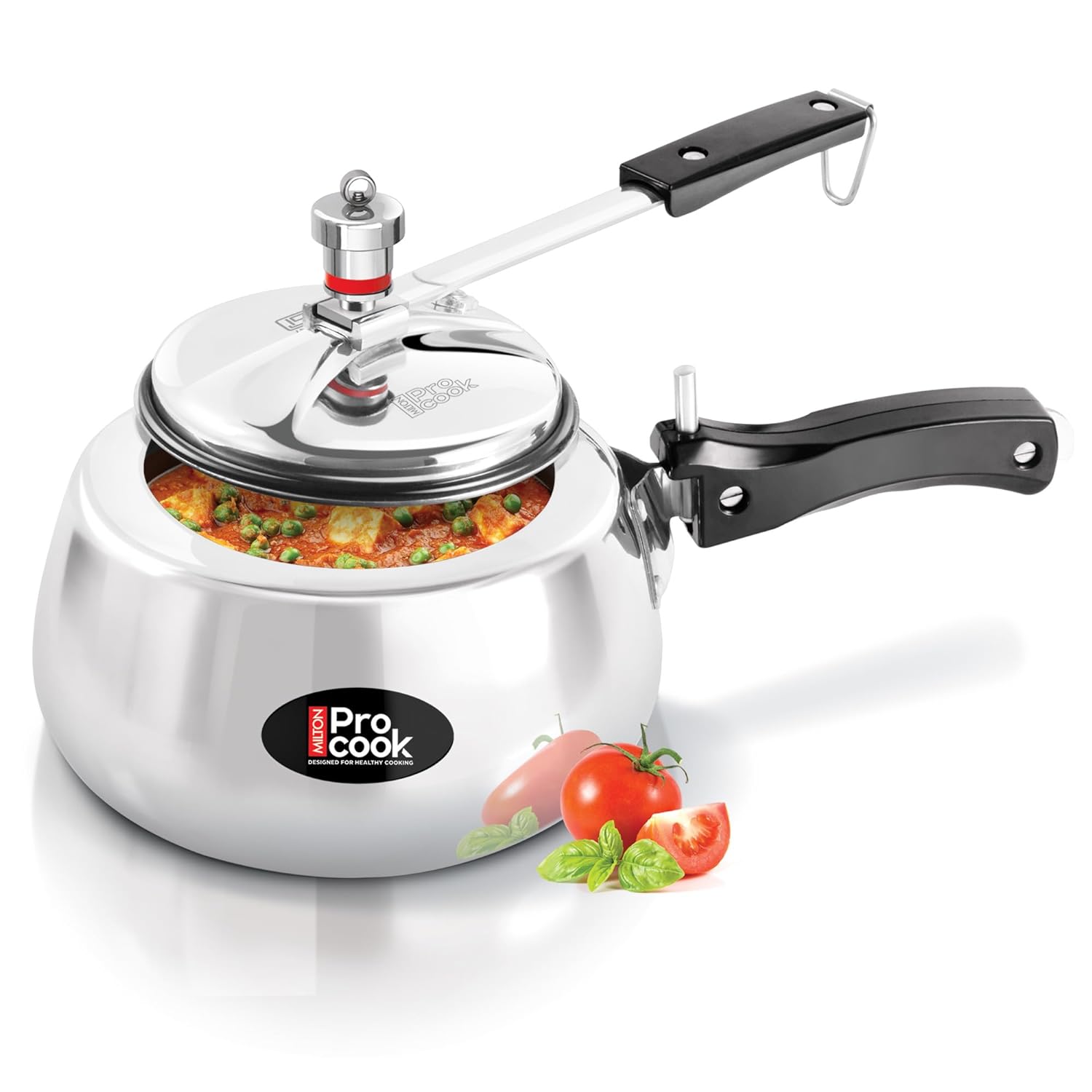


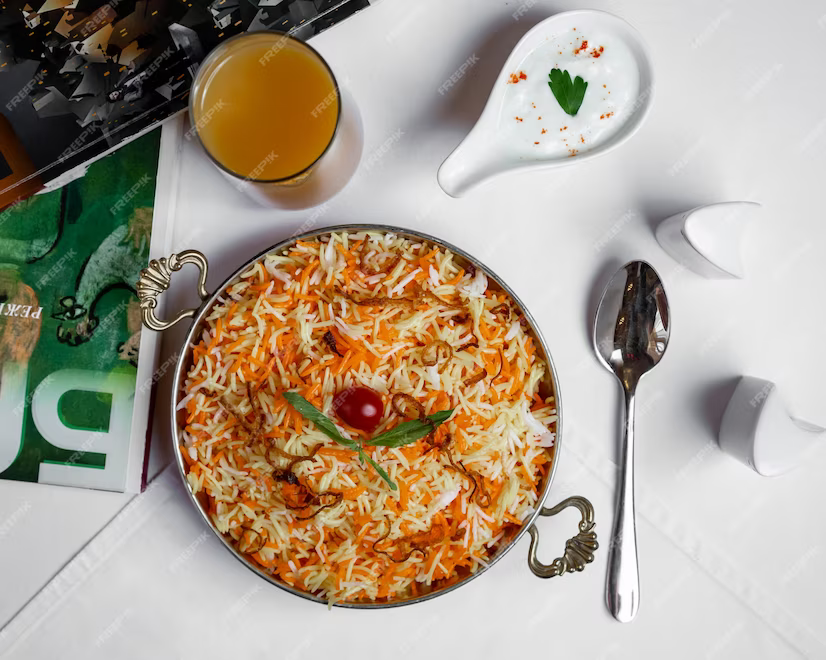





















Leave a comment